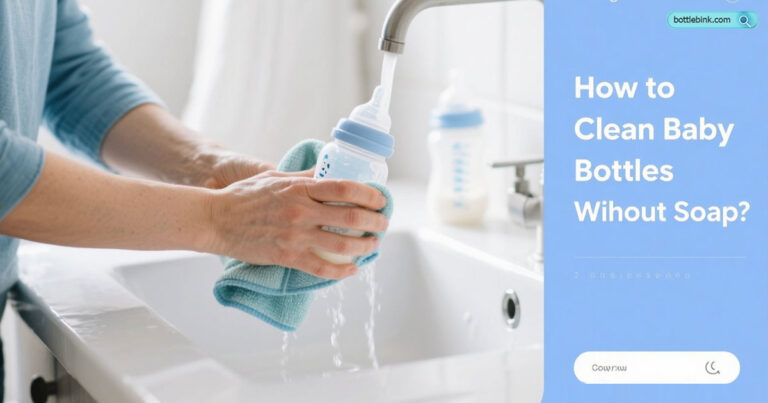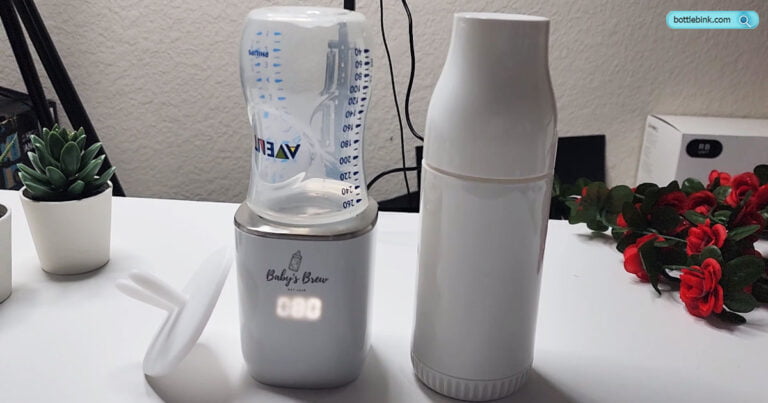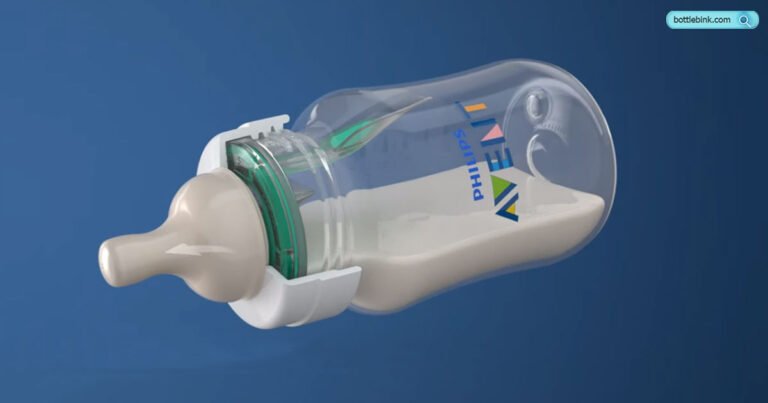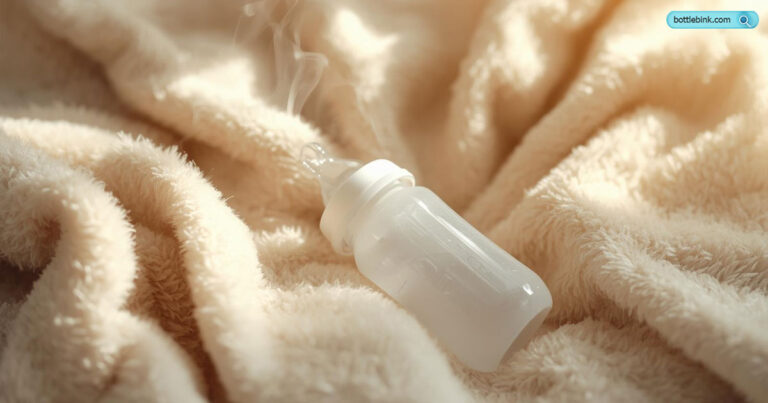What Soap Can I Use to Wash Baby Bottles : The Top Safe Options
To wash baby bottles, use a mild, fragrance-free soap to avoid any harmful residue. When it comes to choosing a soap for baby bottles, it’s crucial to prioritize safety and effectiveness.
Babies have sensitive immune systems, making it essential to use a soap that is gentle and free of harsh chemicals. Opt for a soap that is specifically designed for baby products, ensuring it is gentle on your little one’s bottles.
Harsh soaps can leave behind a residue that may be harmful if ingested. Look for a soap that is fragrance-free and clearly labeled as safe for baby items. By selecting the right soap, you can keep your baby’s bottles clean and safe for everyday use.

Credit: www.amazon.com
Gentle And Safe Soap Options For Baby Bottles
When it comes to washing baby bottles, it is essential to choose a soap that is gentle and safe for your little one. From castile soap to baby bottle cleansers and mild dish soap, there are various options available to ensure proper cleaning without any harmful residues. Let’s explore these safe soap choices in detail:
1. Castile Soap
Castile soap is a popular choice for cleaning baby bottles due to its natural and gentle ingredients. Made from plant-based oils, such as olive oil, this soap is free from harsh chemicals like synthetic fragrances and dyes, making it safe for your baby. It effectively removes milk residue and keeps the bottles clean and fresh. Simply dilute a few drops of castile soap in warm water, wash the bottles, and rinse thoroughly to ensure complete cleanliness.
2. Baby Bottle Cleansers
If you prefer a soap specifically formulated for cleaning baby bottles, there are many baby bottle cleansers available in the market. These cleansers are designed to be gentle on your baby’s delicate digestive system while effectively removing milk and food residues. Look for cleansers that are free from harmful chemicals such as parabens and sulfates. Before using, carefully follow the instructions provided by the manufacturer to ensure proper usage and effectiveness.
3. Mild Dish Soap
In addition to castile soap and baby bottle cleansers, mild dish soap can also be used to wash baby bottles. Choose a mild dish soap that is free from fragrances and dyes, as these additional ingredients can irritate your baby’s sensitive skin. Ensure that the dish soap is thoroughly rinsed off the bottles to avoid any soapy residue. It is important to note that while mild dish soap is an option, it is essential to use soap specifically designed for baby bottles if your little one has any special allergies or sensitivities.
With these gentle and safe soap options, you can confidently wash your baby bottles, knowing that they are free from any harmful residues. Remember to always rinse the bottles thoroughly after washing, and if you notice any leftover residue or smell, repeat the cleaning process. Keeping your baby’s bottles clean is essential for their health and well-being.

Credit: www.amazon.com
Things To Consider When Choosing A Soap
Things to consider when choosing a soap:
Hypoallergenic
Avoid potential allergic reactions with a soap that is gentle.
Fragrance-free
Prevent irritation from artificial scents by choosing a soap without fragrance.
Chemical-free
Opt for a soap that is free from harsh chemicals to ensure safety.
Antibacterial Properties
Look for a soap that has the ability to kill harmful bacteria effectively.
Steps For Washing Baby Bottles
Looking for the perfect soap for washing your baby bottles? Follow these steps for clean and safe bottles using a gentle, fragrance-free dish soap that is specifically formulated for baby items.
1. Preparing The Bottles
Rinse all parts of the baby bottles with cold water before washing.
Separate all components such as nipples, rings, and caps.
2. Rinsing Off Milk Residue
Use warm water to rinse off any remaining milk residue from the bottles.
3. Soap And Water Cleaning
Fill a basin with hot soapy water using a gentle baby-safe dish soap.
Scrub the bottles, nipples, and other parts with a bottle brush.
4. Thorough Rinsing
Rinse all parts thoroughly with hot water to remove any soap residue.
Ensure no soap remains as it can be harmful to your baby.
5. Air Drying
Place all clean parts on a clean towel to air dry completely.
Avoid using towels that may introduce bacteria.
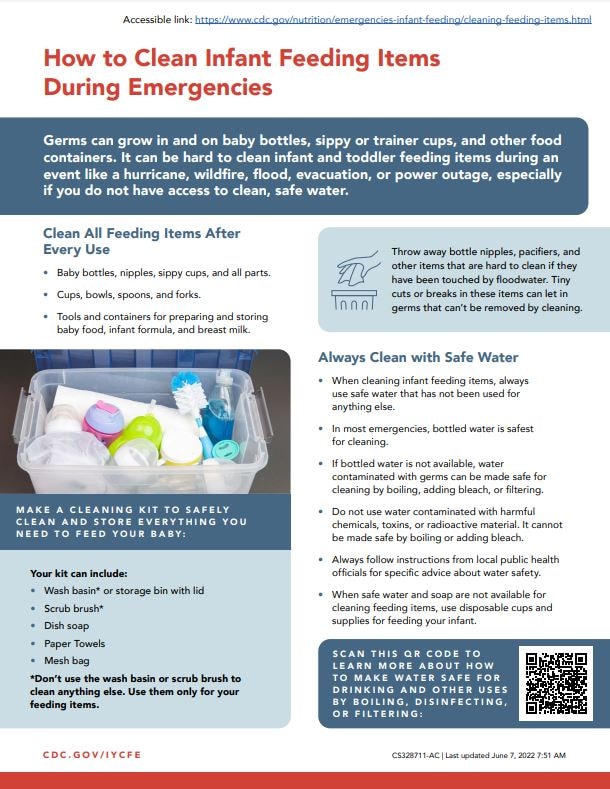
Credit: www.cdc.gov
Alternative Cleaning Methods
In this blog post, we will explore alternative cleaning methods for washing baby bottles. While using soap and water is the most common method, there are other options that can be effective in keeping your baby’s bottles clean and safe. We will discuss sterilizing baby bottles, using a dishwasher, and steam cleaning.
Sterilizing Baby Bottles
Sterilizing baby bottles is an essential step in maintaining proper hygiene. This method ensures that all harmful bacteria and germs are eliminated, keeping your baby’s bottles safe for use.
Using A Dishwasher
Using a dishwasher can be a convenient option for cleaning baby bottles. Simply place the bottles in the dishwasher, making sure to separate the parts, such as nipples and caps, if possible. Set the dishwasher to a high-temperature setting to ensure thorough cleaning and sanitization. After the cycle is complete, carefully remove the bottles and allow them to air dry before using again.
Steam Cleaning
Steam cleaning is another effective method for cleaning baby bottles. This method involves using steam to eliminate bacteria and germs. You can use an electric steam sterilizer or a microwave steam sterilizer, both of which are readily available in the market. Simply place the bottles, nipples, and other parts in the sterilizer, add water, and follow the manufacturer’s instructions. Once the bottles are sterilized, allow them to cool before using.
Safety Precautions
When it comes to washing baby bottles, safety precautions are of utmost importance to ensure the well-being of your little one. Following these guidelines will help in maintaining a safe and hygienic environment for your baby’s feeding utensils.
Avoid Harsh Chemicals
Avoid using harsh chemicals when cleaning baby bottles, as they can leave behind harmful residues. Stick to mild, baby-friendly dish soaps that are free from dyes, fragrances, and other potentially harmful additives.
Proper Bottle Storage
Properly store clean, dried bottles in a clean, covered container to prevent them from accumulating dust and other contaminants. This helps maintain the cleanliness of the bottles until they are ready to be used.
Regular Inspection
Regularly inspect baby bottles for any signs of wear and tear, such as cracks or scratches. Damaged bottles should be replaced immediately to prevent the risk of contamination and potential harm to your baby.
FAQs Of What Soap Can I Use To Wash Baby Bottles
What Soap Is Safe For Washing Baby Bottles?
You can use mild dish soap that is free from fragrances and dyes to wash baby bottles. Make sure to rinse the bottles thoroughly to remove any soap residue before using them again.
Can I Use Regular Dish Soap For Baby Bottles?
It’s best to use a specific baby bottle soap that’s designed to be gentle and safe for cleaning baby bottles. Regular dish soap may contain harsh chemicals that could be harmful to your baby.
How Often Should I Wash Baby Bottles With Soap?
It’s recommended to wash baby bottles with soap after each use to remove any milk or formula residue. Thoroughly cleaning the bottles with soap and hot water helps to prevent bacterial growth and keeps them safe for your baby.
Conclusion
To ensure the safety and cleanliness of your baby’s bottles, choosing the right soap is crucial. With the plethora of options available, it’s important to opt for a gentle, non-toxic soap specifically designed for baby bottles. Look for hypoallergenic, fragrance-free, and eco-friendly options that effectively remove milk residue and bacteria.
By prioritizing your baby’s well-being and using a suitable soap, you can rest easy knowing their bottles are clean and free from harmful contaminants.

